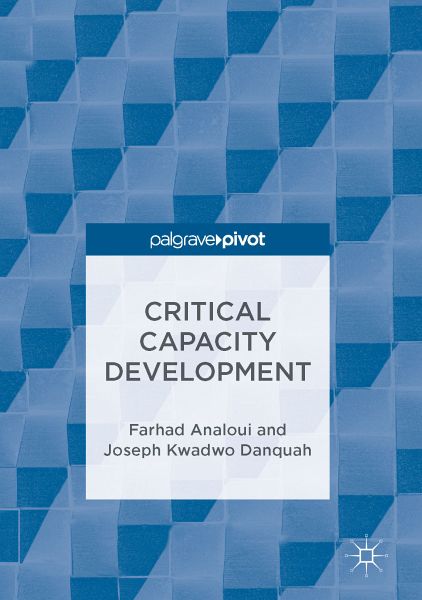
Critical Capacity Development (eBook, PDF)
Versandkostenfrei!
Sofort per Download lieferbar
44,95 €
inkl. MwSt.
Weitere Ausgaben:

PAYBACK Punkte
22 °P sammeln!
This book contributes to our understanding of a neglected and poorly-understood concept within the development field: 'capacity development' in the context of human and organisational sustainable development. Relating 'capacity development' to other perspectives in development thinking and practice and giving an account of the concept's genesis, the book introduces readers to recent empirical research initiatives that help to elucidate the concepts of capacity, capacity development, and capacity management. While capacity development initiatives and programmes have been used by most internatio...
This book contributes to our understanding of a neglected and poorly-understood concept within the development field: 'capacity development' in the context of human and organisational sustainable development. Relating 'capacity development' to other perspectives in development thinking and practice and giving an account of the concept's genesis, the book introduces readers to recent empirical research initiatives that help to elucidate the concepts of capacity, capacity development, and capacity management. While capacity development initiatives and programmes have been used by most international and national agencies over the course of the last five decades, the term means different things to different people and especially to different major players in the international community. This weakens its effectiveness. This book therefore strives first of all to set ground rules that can be utilised by international aid providers such as UNDP, OECD, World Bank, and CIDA and practitioners alike.
Dieser Download kann aus rechtlichen Gründen nur mit Rechnungsadresse in A, B, BG, CY, CZ, D, DK, EW, E, FIN, F, GR, HR, H, IRL, I, LT, L, LR, M, NL, PL, P, R, S, SLO, SK ausgeliefert werden.












